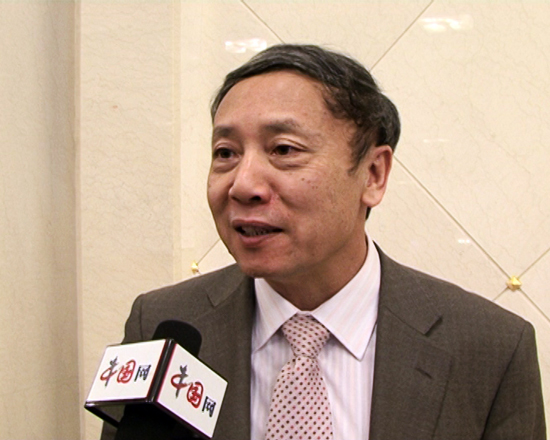Senior scholar advises on demographic dividend
- By He Shan
 0 Comment(s)
0 Comment(s) Print
Print E-mail China.org.cn, December 8, 2013
E-mail China.org.cn, December 8, 2013
Relaxation of China's one-child policy in the short term offers little help in shoring up its demographic dividend, a term meaning a country experiences fast economic growth due to its demographic make-up, said Cai Fang, a senior scholar at the Chinese Academy of Social Sciences, on the sidelines of the International Dialogue on the Chinese Dream Saturday.
 |
| Cai Fang [file photo/China.org.cn] |
His remarks came after the Third Plenum of the 18th CPC Central Committee last month announced that any couple where either parent is an only child can have two children, a move that is expected to allow between 15 and 20 million families across the country to have a second child -- if they choose to do so.
"The new policy won't translate into demographic dividend immediately," he said. "Newborns are not [part of the] work force and it takes at least 20 years for them to grow into workers."
Cai added that if fertility rates can rise to 1.8-1.9, the new policy can indeed exude a positive effect on the demographic dividend in 20 years time.
The fertility rate in China was reported to stand at 1.60 in 2010, according to a World Bank report published in 2012.
China's one-child policy, introduced in 1979, has helped reduce China's population by more than 300 million people and postponed the coming of the 1.3 billion population mark by four years. Yet the policy has also been the target of wide criticism for leading to a decline in the working-age population over the last three decades.
The working population, between the ages of 15 and 59, fell by 3.45 million year-on-year in 2012, a decrease in China's work force for the first time in recent decades, according to data released by the National Bureau of Statistics (NBS) in January.
Cai predicts that the Chinese demographic dividend will disappear as early as 2015, leading to what economists call the "Lewis Turning Point" whereby low-cost manufacturing becomes less competitive as wages go up, forcing changes in the economic structure.
"China's leaders face an extraordinarily complicated obstacle caused by demographic transition as its population is old before China gets rich -- in per capita terms," said Kenneth Lieberthal, senior fellow in Foreign Policy and Global Economy and Development at the Brookings Institution.
Cai said the arrival of the "Lewis Turning Point" will be of great significance to China's economy and it is time for China to shift to a more sustainable economic growth model.
He added that the vast west of China harbors a great labor pool to tap into, which can sustain China's labor-intensive sector for at least 10 more years through industrial relocation.





